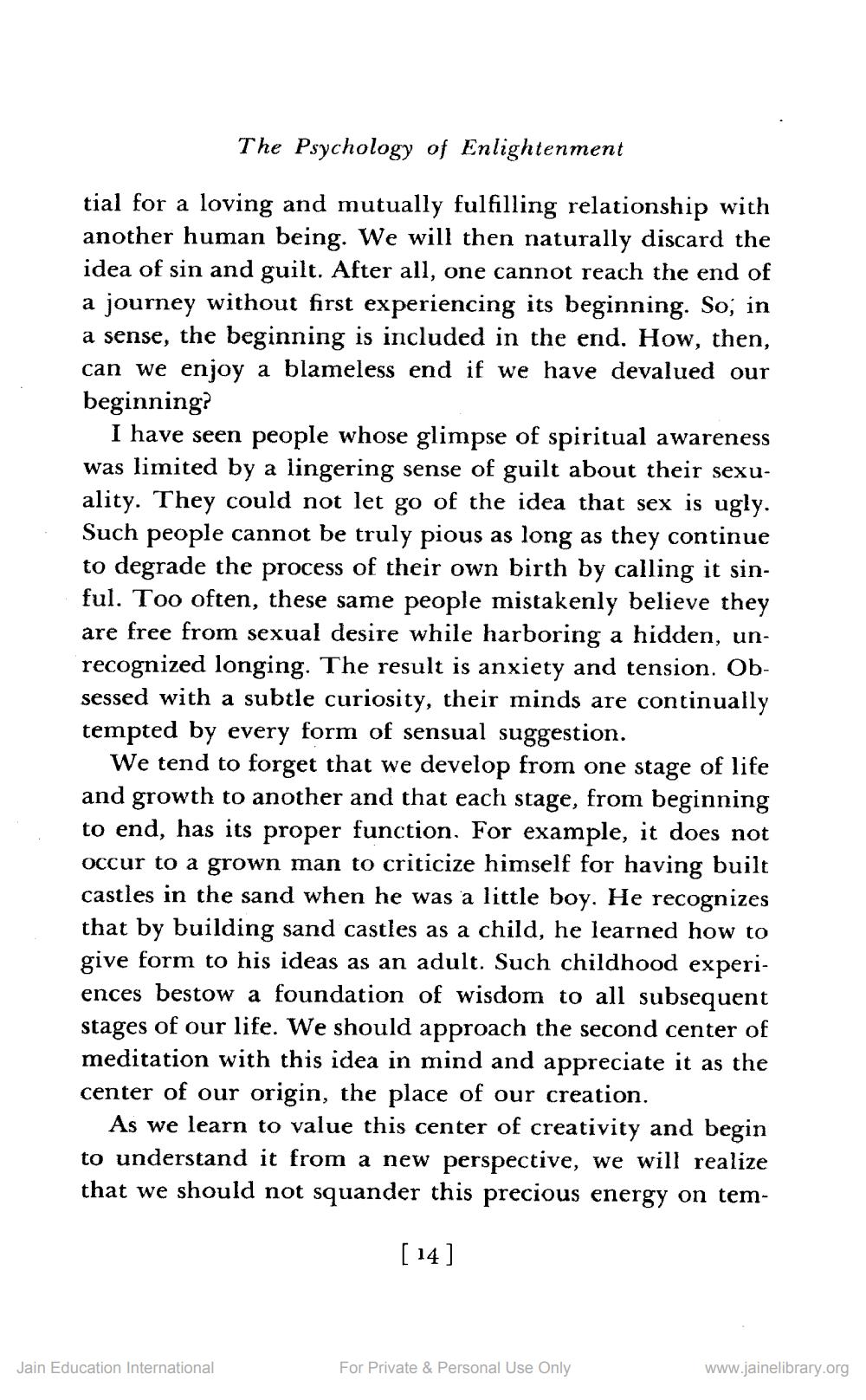________________
The Psychology of Enlightenment
tial for a loving and mutually fulfilling relationship with another human being. We will then naturally discard the idea of sin and guilt. After all, one cannot reach the end of a journey without first experiencing its beginning. So, in a sense, the beginning is included in the end. How, then, can we enjoy a blameless end if we have devalued our beginning?
I have seen people whose glimpse of spiritual awareness was limited by a lingering sense of guilt about their sexuality. They could not let go of the idea that sex is ugly. Such people cannot be truly pious as long as they continue to degrade the process of their own birth by calling it sinful. Too often, these same people mistakenly believe they are free from sexual desire while harboring a hidden, unrecognized longing. The result is anxiety and tension. Obsessed with a subtle curiosity, their minds are continually tempted by every form of sensual suggestion.
We tend to forget that we develop from one stage of life and growth to another and that each stage, from beginning to end, has its proper function. For example, it does not occur to a grown man to criticize himself for having built castles in the sand when he was a little boy. He recognizes that by building sand castles as a child, he learned how to give form to his ideas as an adult. Such childhood experiences bestow a foundation of wisdom to all subsequent stages of our life. We should approach the second center of meditation with this idea in mind and appreciate it as the center of our origin, the place of our creation.
As we learn to value this center of creativity and begin to understand it from a new perspective, we will realize that we should not squander this precious energy on tem
[14]
Jain Education International
For Private & Personal Use Only
www.jainelibrary.org




